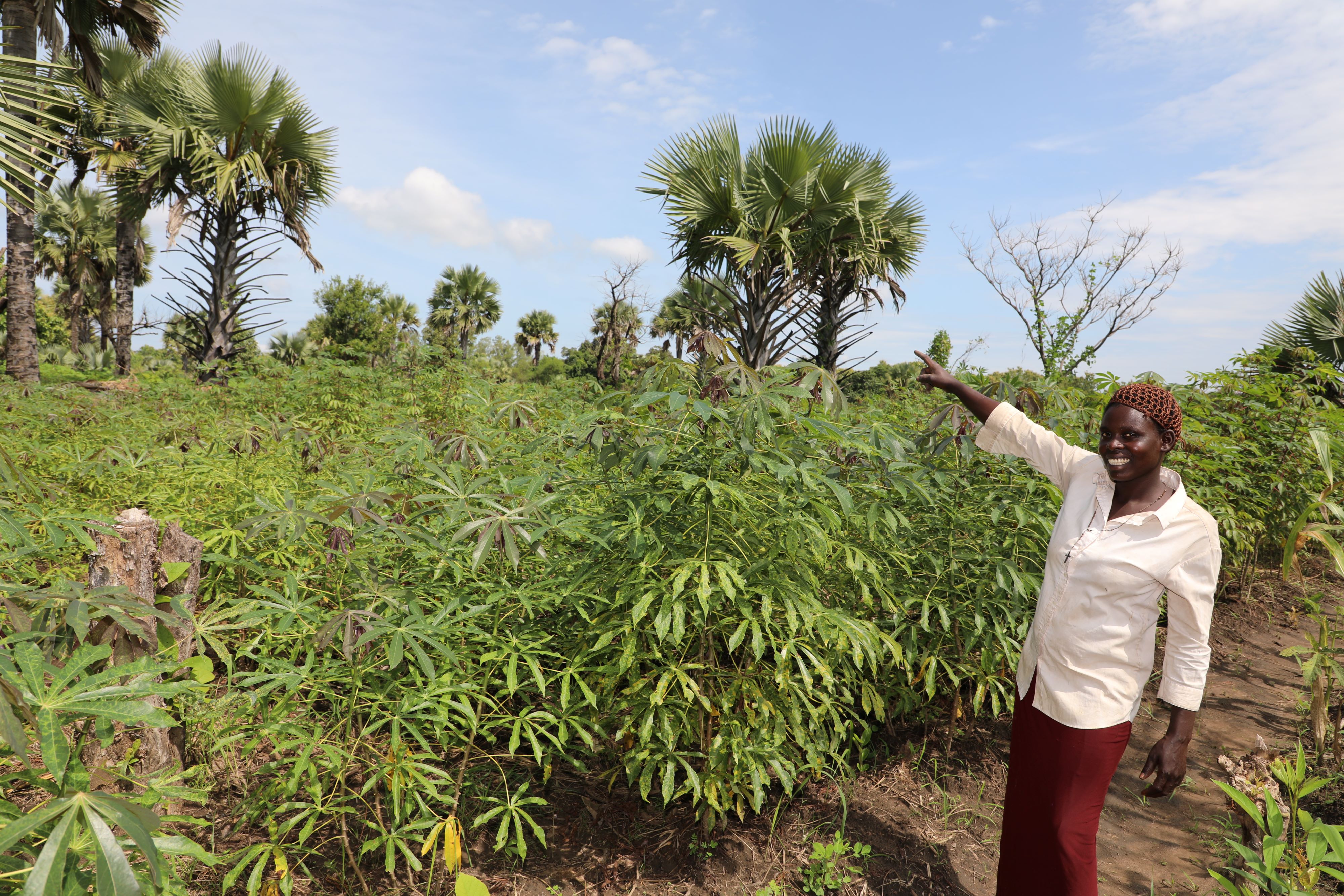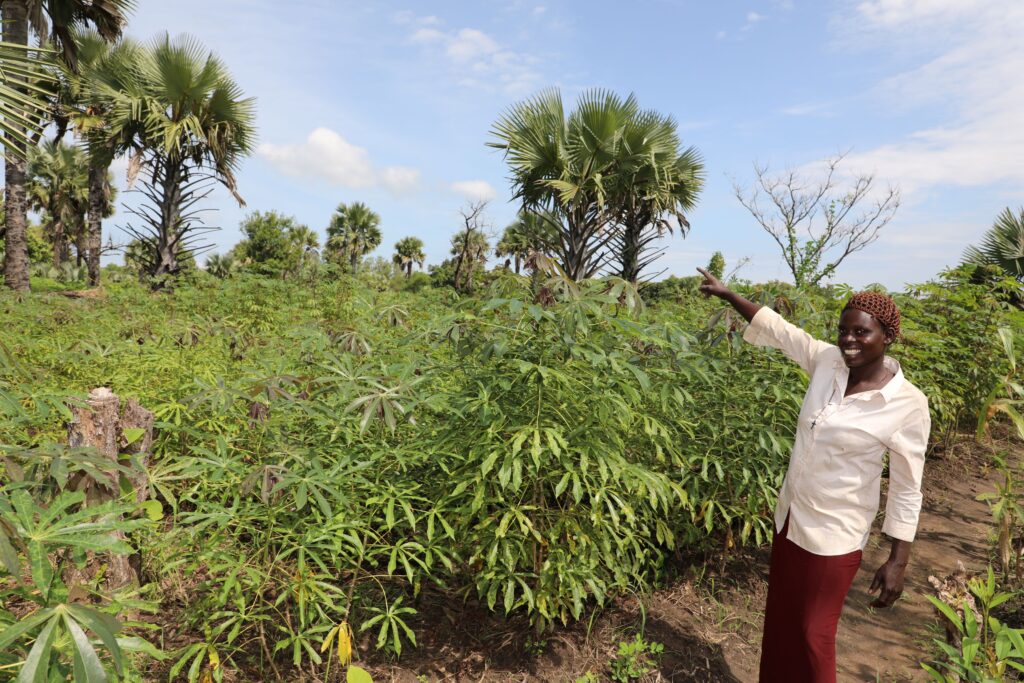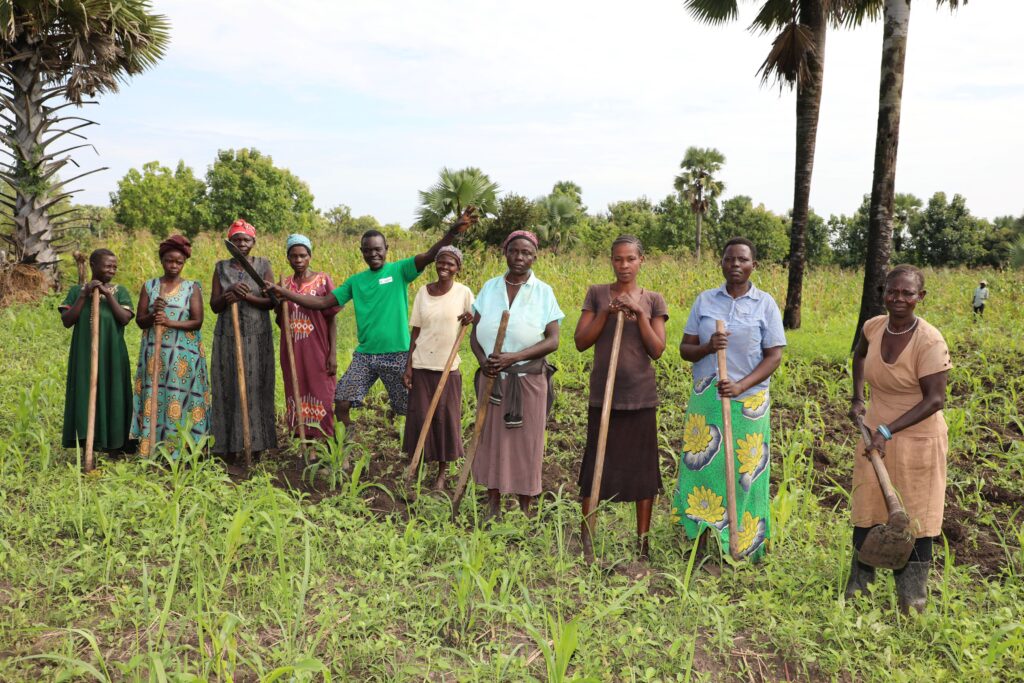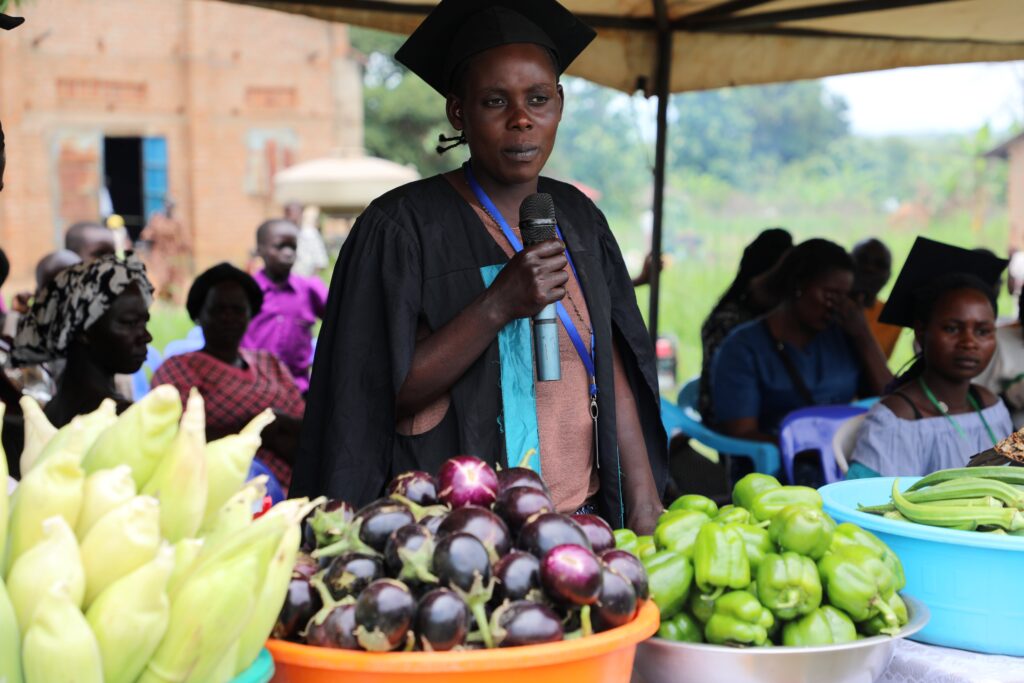
Climate-smart farming techniques helping improve life for South Sudanese women
by Tracy Omballa
CGTN Africa Desk Editor
The Pilot House, a program launched by Women for Women International is making a major difference in the lives of women in South Sudan. The program teaches women climate-smart farming techniques, improving food security and economic opportunities for families.
26-year-old Betty Sunday Santo is one of the program’s recent participants.

After being forced from her village during the 2016 crisis, the mother of three relocated to Ronyi Boma-Yei River County. She says at first. things were challenging.
“We lacked food, the children were constantly sick due to poor feeding, and they failed to go to school several times.”
She took out a loan and began selling firewood at the market to make ends meet. She later decided to operate a restaurant with her meager net resources. She then started farming after seeing a little plot of land near her new home.
For seven years, Santo made enough to get by. But she wanted to get ahead.

Women for Women International helped her turn things around.
In March 2023 Santo enrolled in the group’s “Couple’s Training” program. She and her husband studied financial management, saving, and how to work together. They received instruction in modern, simple, and practical farming techniques, recognizing crop types, seasons, and soil development, among other things.
Santo and the other participants received monthly stipends of 10 U.S. dollars. Upon completion of the program, each couple received a 100 U.S. dollar grant along with seeds and agricultural gear. Additionally, the group assisted them in processing agricultural land from their neighbourhood.
“After receiving the funds from WfWI, I paid off all of my debts. We hired more workers and purchased other essentials with a portion of the money to supplement our farming operation”, she says. “We started farming together with my spouse after gaining these new agricultural abilities. He assisted us in obtaining this land, which is sizable enough for us to farm on. We now understand how to care for the many types of crops, and our farm is doing incredibly well.”
Santo says she produces enough food to feed the entire family, store for emergencies, and sell for profit.
“In my most recent harvest, I harvested 4 basins of onions, 3 (50 kg) bags of peanuts, 4 basins of peas, and 4 bags of cassava,” she said. Her children now attend school without any difficulties. Without the assistance and training from WfWI, I could not have accomplished even half of these. I’ve become really good at selling farm items as well.”

Some of the climate-smart agricultural practices that Betty and other farmers have been implementing, such as line planting, help farmers determine the exact plant population in their gardens, Bosco Lokosang, Women for Women International’s Agriculture Officer, says.
“This information is crucial because it allows farmers to plan ahead, both for planting and harvesting. By knowing the expected quantity of crops, they can make more informed decisions about their yield before the growing season even begins.”
Lokosang adds that their “Couples Training” project helps in sharing responsibilities.
“Traditionally, tasks like weeding were seen as the woman’s duty, but now both husbands and wives participate in all aspects of farming, including weeding. By working collaboratively, farmers can pool their resources and achieve mutual benefits. This approach fosters cooperation, compromise, and trust among them.”
“By training both partners, the program can help prevent conflicts at home, fostering greater peace and prosperity within households, Santo concludes.






